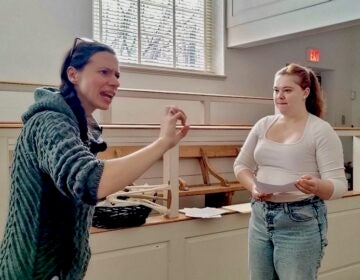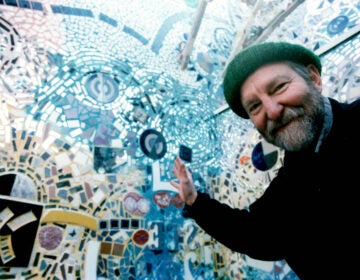Fabulous Philadelphians release studio CD
The Philadelphia Orchestra is releasing a studio CD. While the orchestra has released many recordings over the past few decades, all were performed live as part of the orchestra’s regular subscription season.
This is the first time in 15 years — since Wolfgang Sawallisch — that the ensemble performed exclusively for microphones.
“We went under ‘studio conditions,'” said orchestra vice president Ryan Fleur. “We can set up the microphones exactly how we want them, we don’t have to worry about sight lines for the audience. You can have a big block of time where we can run through the piece, we can run sections at a time.”
Music director Yannick Nézet-Séguin “runs offstage and listens to what has been recorded. It’s an old-fashioned way of making recordings,” he said.
Last spring the Fabulous Philadelphians and Nézet-Séguin holed up in the orchestra’s home — Verizon Hall in the Kimmel Center — to record pieces from that season’s programming: Stravinsky’s “Rite of Spring” and Bach transcriptions by Leopold Stokowski. It has been released on the Deutsche Grammophon label.
Previous music directors preferred recording with a live audience, which can be livelier and — quite frankly — cheaper. Studio recordings often involve paying musicians extra to be available outside the conditions of their contracts, whereas live recordings are, essentially, already paid for.
Revenues from recordings of classical music have taken a dive in the last 10 years, just as they have in the music industry, generally. Orchestras everywhere are trying to find financially sustainable ways to make recordings and get them to audiences, half of which, said Fleur, prefer to own physical discs. The days of making big revenues from CD sales are long behind the Philadelphia Orchestra; nevertheless it will still make room for expensive projects like this one.
“The orchestra’s digital media strategy is a combination of tradition and innovation — this is very much in the traditional vein. But there are also very deep artistic reasons,” said Fleur. “The combination of the pressure and the environment in which the musicians are able to express artistry are a little different than in a concert setting.”
WHYY is your source for fact-based, in-depth journalism and information. As a nonprofit organization, we rely on financial support from readers like you. Please give today.








